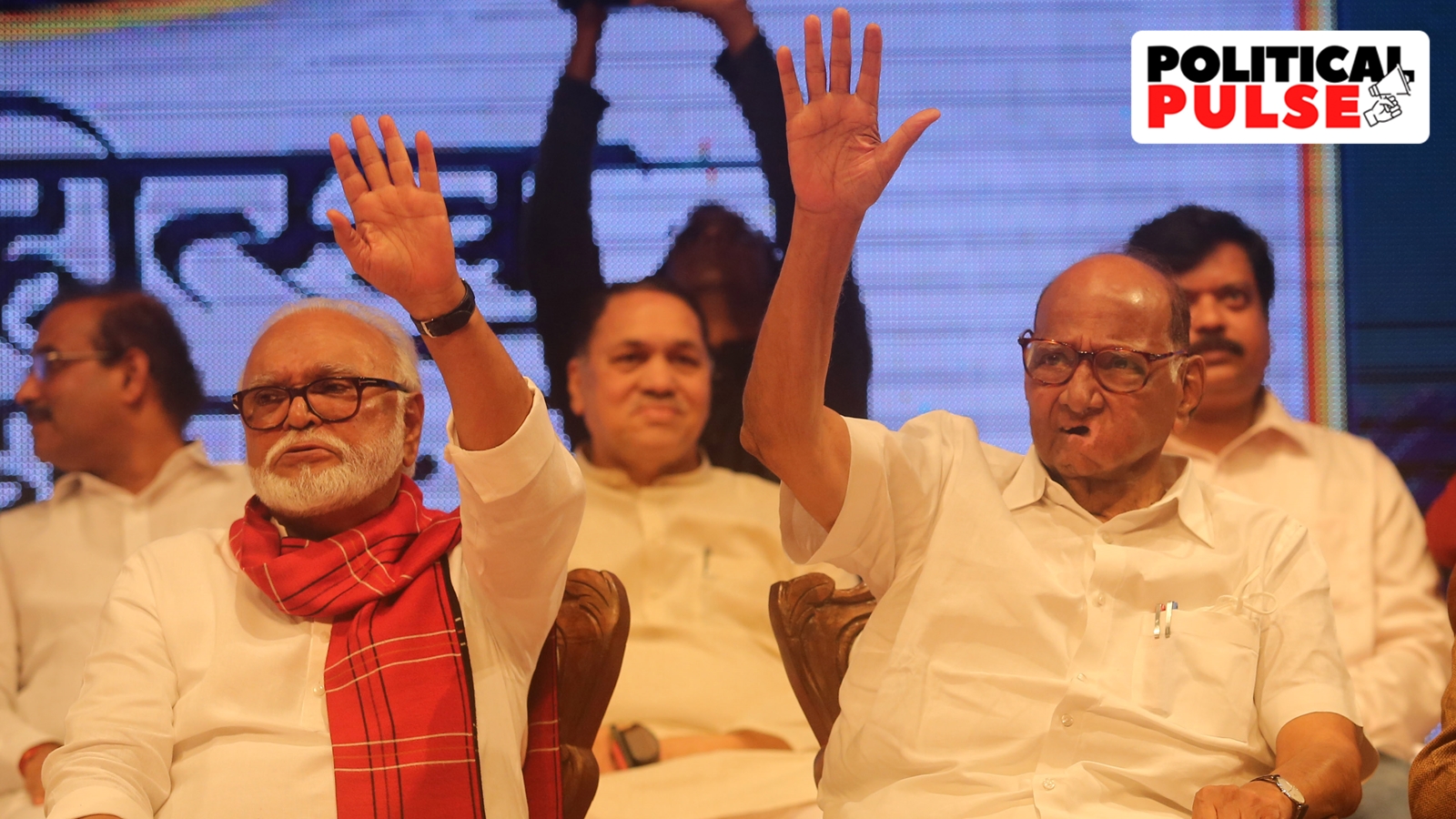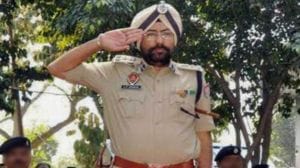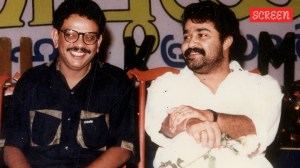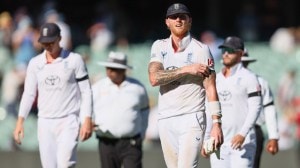As Chhagan Bhujbal meets Sharad Pawar, was it about Maratha-OBC stalemate or more?
Meeting comes day after the state minister targeted his former party chief over Opposition’s boycott of all-party meeting to discuss quota row
 Maharashtra Minister Chhagan Bhujbal and NCP-SP chief Sharad Pawar. (Express file photo by Ganesh Shirsekar)
Maharashtra Minister Chhagan Bhujbal and NCP-SP chief Sharad Pawar. (Express file photo by Ganesh Shirsekar)On a rain-soaked Monday morning in Mumbai, senior Maharashtra minister Chhagan Bhujbal met his former party leader and Nationalist Congress Party (Sharadchandra Pawar) chief Sharad Pawar at the latter’s residence, creating a bit of a stir in the state’s power corridors.
“The situation in Maharashtra is getting worse following growing animosity between Marathas and OBCs (Other Backward Classes) over reservation,” Bhujbal, one of the tallest OBC leaders in the state, said after the meeting. “Intense polarisation is detrimental to the social fabric of a progressive state like Maharashtra. A senior and experienced leader such as Sharad Pawar should come forward and take up the responsibility of restoring peace … The Maratha versus OBC dispute is turning volatile. Marathas are boycotting OBC establishments and vice versa. It is dangerous for the welfare of Maharashtra.”
The meeting came a day after the 76-year-old Bhujbal targeted Pawar, 83, at a rally on the latter’s home turf Baramati. “Opposition leaders stayed away from the all-party meeting (on July 9) after a phone call from Baramati at 5 pm. A senior leader such as Sharad Pawar should have come to the meeting and provided us with his input. Boycotting the meeting and then giving advice does not serve any good,” the minister said in a scathing attack on the NCP (SP) leader on Sunday evening.
Those privy to the discussions between the two leaders said the meeting was an act of damage control by Bhujbal. “As Bhujbal realised, he should not have been so outspoken. It left many within the NCP (SP) and even Ajit Pawar’s NCP upset,” said a source.
According to insiders, by asking Pawar to intervene, Bhujbal, known for being politically astute, has attempted to achieve two objectives. One, he has tried to bring the Opposition into the row and signal that it is as much a stakeholder as the government in the Maratha-OBC matter. Second, he has subtly signalled that Chief Minister Eknath Shinde, one of the leading Maratha faces in the state, has failed to resolve the problem.
Earlier this year, Bhujbal was not so subtle when he brought to the fore the differences in the Mahayuti over the quota row. He disclosed that he had resigned from the government in November 2023 to protest against the state government’s bid to facilitate Maratha reservation under the OBC category. At the time, his move was believed to have had the BJP’s support as it wanted to ensure that the OBCs were not antagonised even as CM Shinde led efforts to placate the Marathas.
In recent months, Bhujbal has appeared at odds with the Mahayuti on quite a few issues, fuelling speculation that he may switch sides. He said publicly that the NDA’s “400 paar” pitch during the Lok Sabha poll campaign hurt its prospects and came out in support of Shiv Sena (UBT) chief Uddhav Thackeray when the BJP blamed him for the Mumbai hoarding collapse that killed nine people. He also opposed a government proposal to include Manusmriti in the state schools. Then came reports of his dissatisfaction over not getting either the Nashik Lok Sabha ticket or the Rajya Sabha berth that went to Ajit Pawar’s wife Sunetra.
On Monday, Bhujbal’s Mahayuti partners refused to read much into his meeting with Pawar. “The Bhujbal and Pawar meeting is not political. Nothing inappropriate if two leaders from different parties meet to discuss some issue. To presume that Bhujbal is distancing himself from the Mahayuti or getting close to rivals is a wild imagination and wishful thinking by some Opposition leaders,” said state BJP president Chandrashekhar Bawankule.
Shiv Sena’s Sanjay Shirsat also downplayed the meeting, saying there was nothing more than “two leaders holding discussions on some state matters”.
Lessons from Pawar
A four-time CM, Pawar has experience in handling conflicts between communities and they hold lessons that the Mahayuti can learn. From the implementation of the Mandal Commission report in 1992 to resolving disputes between the Dhangar and Vanjari communities, Pawar helped resolve these issues through consultations.
Former president of Banjara Manch, Haribhau Rathod said, “Sharad Pawar spoke to us in detail in the early 1990s. There was a dispute between the Dhangars and Vanjaris. We suggested sub-categorisation under OBC, which was accepted. If a leader has the political will, every issue can be resolved. They can club Marathas and Kunbhis in one subcategory, enhance OBC quota by 10%, and give Maratha-Kunbhis reservation as a separate OBC sub-category.”
For the Mahayuti, there is also a lesson in how a dispute between communities can bring down a government. On February 14, 1994, the Pawar-led Cabinet approved the renaming of Marathwada University after Dr B R Ambedkar, triggering riots in Marahwada. The traditional Maratha vote bank was so upset with the Congress that it looked for an alternative. The unrest then is accepted as one of the reasons that brought down the Pawar-led Congress government and propelled the Shiv Sena-BJP to power. The late Bal Thackeray, then the Sena chief, had taken a vocal stand against reservation.
- 01
- 02
- 03
- 04
- 05































